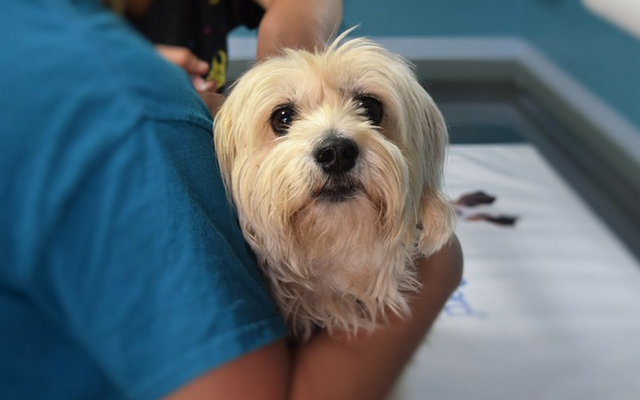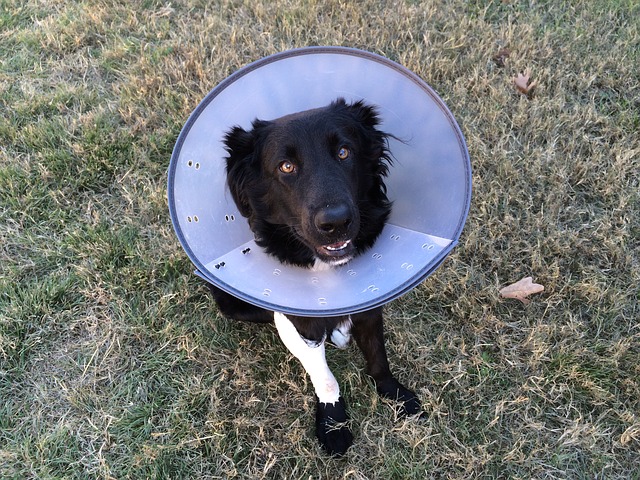Having a good relationship with a veterinarian is an important part of being a responsible pet owner. From annual check-ups to emergency situations, you need to know your chosen vet will give your pup the best possible care.
Trust, respect, and confidence all come into play, and unfortunately, you can’t always find the ideal person with the first office you schedule appointments with. If a recent experience has you doubting whether or not you’ve found “the one,” pay attention to these signs that mean you and your pup may be better off finding a different veterinarian.

1. There was an obvious error in treatment.
There are no guarantees when in comes to health, but a blatant mistake or misdiagnosis isn’t worth risking twice. If something goes wrong during a surgery or your pet’s health is negatively affected due to a decision made by your veterinarian, start with a conversation. Talk with them about what went wrong and be honest with how you feel. Lingering doubt on your part will affect all future interactions between you and your vet. It might be best to move on.
Related: Inventor Creates The First AI Powered Veterinarian
2. They give orders, not options.
Veterinary care is never black and white. There’s a lot to consider when deciding on the best way to move forward with your dog’s health. Your veterinarian is in charge of making the diagnosis and guiding you toward a treatment, but they shouldn’t be bossing you around and telling you what to do. Consider it a red flag if you frequently hear sentences that start with, “You need to…” or, “You have to…” and end with seemingly non-negotiable demands. Instead of telling you what to do, your vet should initiate a conversation that goes over all possible options and reasons why they recommend a specific course of action.

3. They’re not current on new technology and veterinary advancements.
The world of veterinary science moves fast. Improvement in technology and updated ideas about what works best are constantly changing the ways in which dogs receive care. All of this forward motion is for the better, and the best vets are the ones that make it a priority to stay knowledgeable about what’s new. If your veterinary office is using the same equipment they’ve had for a decade, and the main vet isn’t knowledgeable about the newest studies and findings, your dog isn’t receiving the best care available.
4. Your dog is uncharacteristically uncomfortable in their care.
Some dogs put their tails between their legs before they even walk through the door to the vet. It’s possible that even the best vet wouldn’t be able to break through their nerves. But if your dog is typically comfortable around new people and has never shown signs of vet-related anxiety before, a good way to judge your chosen vet is to observe your dog’s behavior. Dogs are keenly perceptive, and they’re good at judging a person’s character. If they act strangely aggressive, nervous, or upset in the hands of a particular vet, it will be worth it to find someone they’re comfortable with.

5. Your dog doesn’t receive personalized care.
If you only see your vet once a year, don’t be offended if they mix up your dog’s name. Accidentally saying Cooper instead of Copper is forgivable, but treating your pet more like a problem that needs to be solved than a beloved family member is different. You should get the feeling your vet truly cares about your individual dog. They have a lot of other patients, but that doesn’t mean your dog deserves anything less than personalized attention.
6. They’re eager to empty your pockets.
There’s no way around the fact veterinary care can be expensive. There’s the exam fee to start off with, plus any other treatments or services your dog needs. A simple x-ray can cost hundreds of dollars, but a trusted vet will understand the average pet parent doesn’t have an unlimited bank account. Sometimes spending the big bucks is unavoidable, but there are usually budget-accommodating options as well.

7. You feel like your vet is judging you or looking down on you.
If you can’t afford a $15,000 organ transplant for your dog, there’s no way around it. You shouldn’t feel like your vet is negatively judging you because of financial restrictions. If you leave a tray of brownies on the counter and your dog gobbles it up and gets sick, you shouldn’t be embarrassed to admit your mistake to your vet. They should be supportive and help guide you toward being the best possible pet parent without breaking you down.
8. The facility is dirty and/or smells bad.
It’s okay to see some dog hair on the floor, but the exam rooms should be generally clean and well taken care of. You shouldn’t be affronted with a waft of unwashed dog or urine as soon as you open the door, and the building in general should be in good shape. Not cleaning up after patients and letting the facility fall into disrepair is a sign the staff isn’t as committed to their reputation as they should be.

9. You don’t have the opportunity to ask questions.
Unless you’ve completed veterinary school yourself, you’re bound to have questions when it comes to caring for your dog. You should feel comfortable asking as many questions as come to mind. Ideally, your vet should specifically ask you if you have questions at every appointment. If you feel rushed to leash up your dog and get out of the office to make room for the next patient, consider that a bad sign.
10. Your questions aren’t answered satisfactorily.
Whether it’s subconscious or on purpose, some vets avoid directly answering questions. When the appointment is over and you’ve asked all your questions, you should feel completely confident in what happened and what’s about to happen. If you’re more confused than ever or go home with a mental list of terms you plan on Googling, your vet didn’t do their job.
Above all, your dog’s vet should be someone you respect and someone you can get along with. If you can relate to more than one of these signs or you simply aren’t connecting with your chosen veterinary professional, choose a time when your dog doesn’t need immediate care and try someone else. Your dog’s health is worth the effort.
 Toledo, United States.
Toledo, United States.